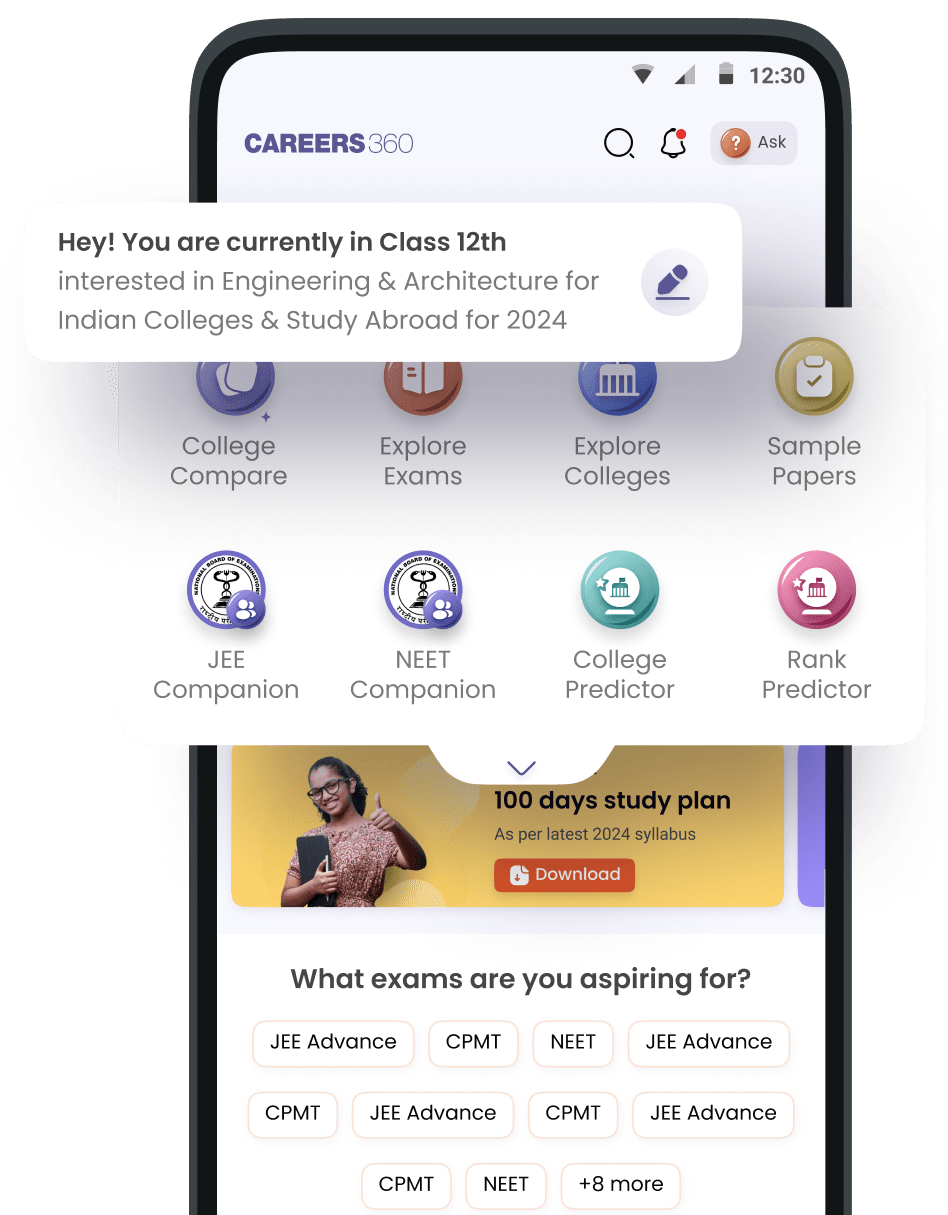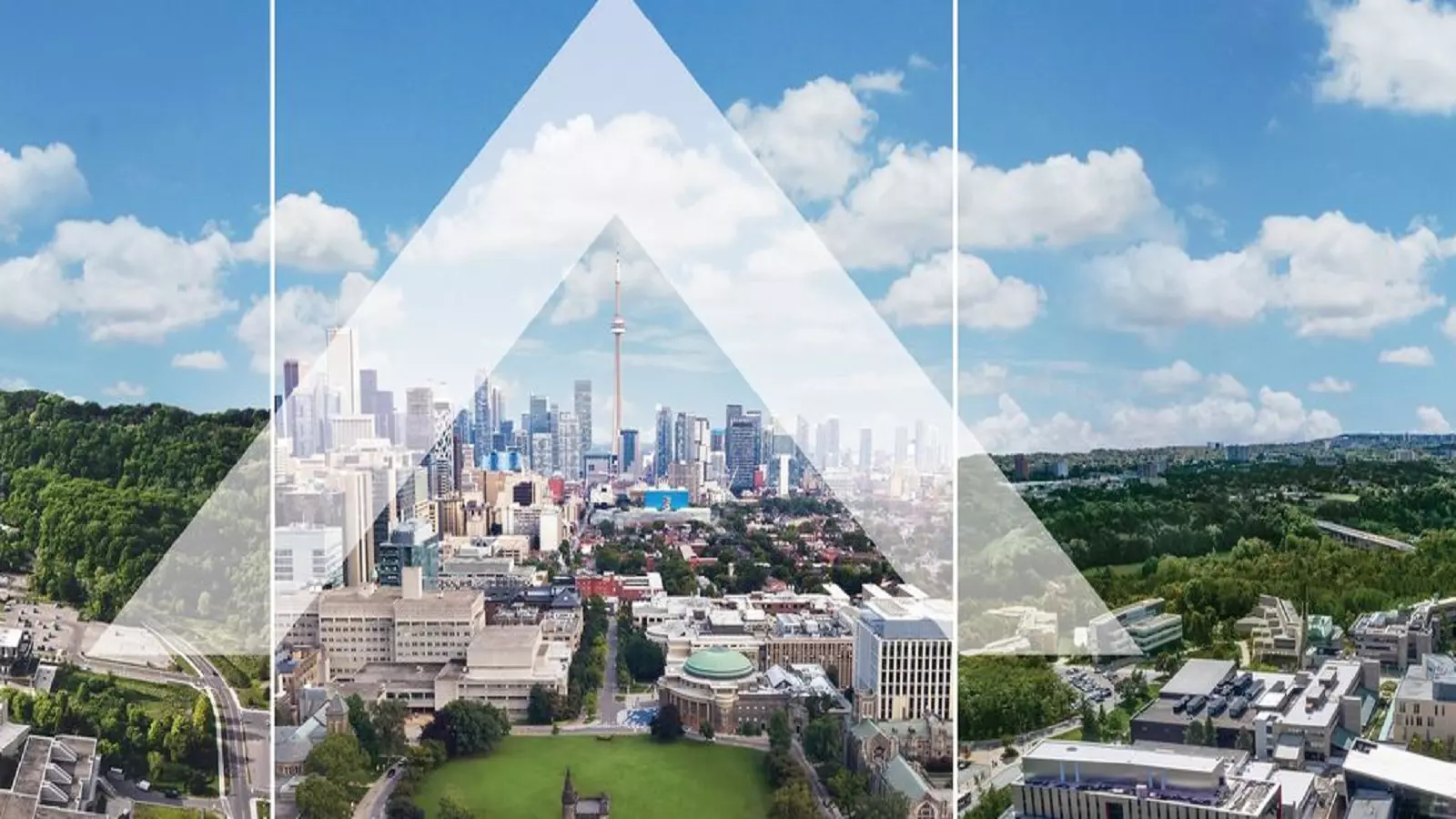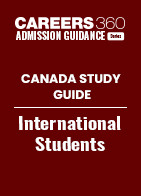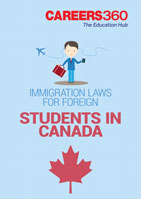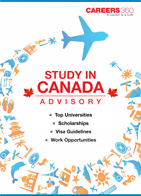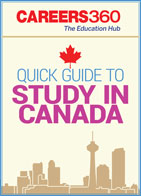Explore Courses in Canada
Popular Universities
Exams
Canada provides one of the best quality education in the world. Every year more than 1 million international students travel to Canada for study purposes from over 200 countries across the world. There are almost 31 top Canada universities that are featured in the QS World University Ranking 2024 list. Study in Canada is seen as the best alternative to USA and UK. Canada has one of the best education systems in the world. Each province in Canada has its own school system and follows government standards.
The Canada universities for international students offer in-depth theoretical subjects like medicine, engineering, art, etc, and many more, providing students with bachelor's, master's, and PhD degrees. On the other side, the Canada colleges are more career-oriented and give practical training with diploma or certification programs. International students generally prefer to study engineering, IT, medicine, health sciences, nursing, pharmacy, and MBA courses in Canada. The STEM courses are also rapidly evolving, providing students with cutting-edge programs and research opportunities.
In addition to regular bachelor and master courses, international students are also drawn to short-term vocational and diploma courses like HR, logistics, software engineering, social media marketing, etc., offered by the universities and colleges in Canada, for seeking immediate job opportunities in this country. Indian students can study in Canada for any UG Degree or Diploma, right after completing their class 12th. The UG course duration can take up to 3 to 4 years. Whereas the masters in Canada are of 1 to 2 years duration.
Here are the top 9 reasons for studying in Canada. After knowing these Indian students can consider Canada as one of the best study abroad options.
- Quality Education - Only the designated learning Institutes (DLIs) that meet the quality assurance standards can host International students to study in Canada.
- Top Universities - Almost 9 universities in Canada rank in the top 200 world universities rankings of QS 2024. Studying in these top-notch colleges gives students with great qualifications to build their careers.
- Comparably Low Tuition Fees - The Tuition fees to study in Canada for Indian students are lower than those of Australia, the UK, and the USA.
- Work While Studying - International students can work for part-time jobs in Canada for up to 20 hours per week.
- Easy to get a Permanent Residency - International students with a post-graduation work permit can apply for PR in Canada after decent years of work experience. Almost 60% of international students in Canada became landed immigrants in Canada within the last 10 years.
- Best Study Abroad Country - Canada ranks 7th position as per US News & World Report 2023.
- Cultural Diversity - The multicultural environment in the country is welcoming for many international students and gives warmth in times of homesickness.
- Best Outdoor Activities - Apart from studies, students can get a break into the wonderful wildlife, travel adventures, Niagara Falls, northern lights, cave tours, etc.
Peaceful and Safe Country - As per the Global Peace Index report, Canada is ranked as the 11 peaceful and safest country in the world. So students can feel safe while studying in the country.
Fees & Living Expenses
Cost of Study
Cost of Living
Admission Guidelines
- Student Visa
- Application Details
- LOR
- SOP
In Canada, the study visa is referred to as a study permit. International students must apply for a study permit in Canada to study at the registered colleges in the country. The Canada student visa is valid throughout the course duration plus 90 days after course completion. Candidates can apply for the visa online or offline. The canada study visa processing time is 10 weeks.
Students who want faster visa approval can choose to apply for a Student direct stream(SDS). The SDS application takes only 20 days of processing time. Upon successful visa application processing, the students outside of Canada will get a study permit along with a visitor visa/electronic travel authorization(eTA).
Here are the documents required for a Canada student visa
- A valid passport
- University admission letter
- Provisional attestation letter(for UG and non-degree level)
- Proof of funds to support educational & living expenses in Canada
- Letter of examination explaining the purpose of study in Canada.
- Medical examination reports
- Custodian declaration (for minors)
Provisional Attestation Letter - Only the students who are willing to study non-degree level courses and UG courses in Canada are required to submit the provisional attestation letters (PAL) for student visa application. If the non-degree level courses are less than 6 months, then no PAL is required for a Canada student visa.
Proof of funds - Recently from January 1, 2024, there has been an increase in the financial requirement for study permit applications, so students need to provide financial proof of CAD 20,635 to support their living costs while studying in Canada

Here is the list of documents that are necessary while applying to universities in Canada. However, each university requirement can vary depending on the course chosen by the candidate.
- Resume - A CV or resume detailing the candidate's educational background, skill, work or internship experience, projects, etc.
- Academic Transcripts - Academic Transcripts are the certified copies showcasing the grades, and record of achievements of the students.
- English proficiency test scores - As Canada is an English-speaking country, international students need to submit their English language proficiency test scores like IELTS, TOEFL, PTE, etc. Each university accepts a particular English proficiency exam. So candidates can check these requirements and apply accordingly.
- Standardised Exams Scores - As a part of the selection process, every course has certain standardised exams to be qualified by the student. Exams like the SAT and ACT are UG-level entrance exams. Whereas the GRE is for master's and MBA courses in Canada and law programs
- Work experience letters - Management courses in Canada require 1 to 5 years of work experience. Students with an education gap or having work prior experience in their home countries can submit their work experience proofs like joining letters, salary slips, employment certificates, etc.
- Financial documents - Financial documents include university application fee receipts or initial enrollment charges, etc.
All the documents that will be sent to universities must be in the English language only, if not they can be translated to English
Popular Places To Study In Canada
- British Columbia
- Ontario
- Quebec
- New Brunswick
- Nova Scotia
Related E-books & Sample Papers
Students with valid study permits can work for both on-campus and off-campus jobs. There is no specific time limit on the working hours for on-campus jobs in Canada. Whereas for off-campus jobs, students can work for up to 20 hours per week. On average, international students can earn CAD 15 to 22 per hour by working part-time.
Working for these part-time jobs in Canada helps in managing the expense for the living costs in Canada. Not just confined to part-time in Canada, international students can also work remotely for any employer outside Canada as long as they meet the study permit conditions. For these outside-country jobs, students can work many hours without considering the 20-hour-per-week limit.
After graduating from a Designated Learning Institution in Canada (DLI) it is possible to work after studying in Canada. Students can apply for a post-graduate work permit(PGWP) program that allows them to stay and work in Canada for 2 to 3 years. During this period students can work or look for full-time job opportunities in Canada. PGWP does not apply to all the courses at DLIs, so candidates can check whether their course is eligible for PGWP and apply for it.
Students with study programs with less than 8 months are not eligible for a post-graduate work permit. After obtaining decent work experience through PGWP or depending on the course studied in Canada, international students can even apply for PR in Canada.

Explore Articles
FAQ's
We know you have a lot of questions in your mind, so have answered common questions students as you raise about study and living in the Canada.
Tuition fees vary according to the Universities and degree programs. The average tuition fee in Canada is around $36,100 per year for international undergraduate students and $21,100 per year for international graduate students as per the Statistics of Canada, 2022.

